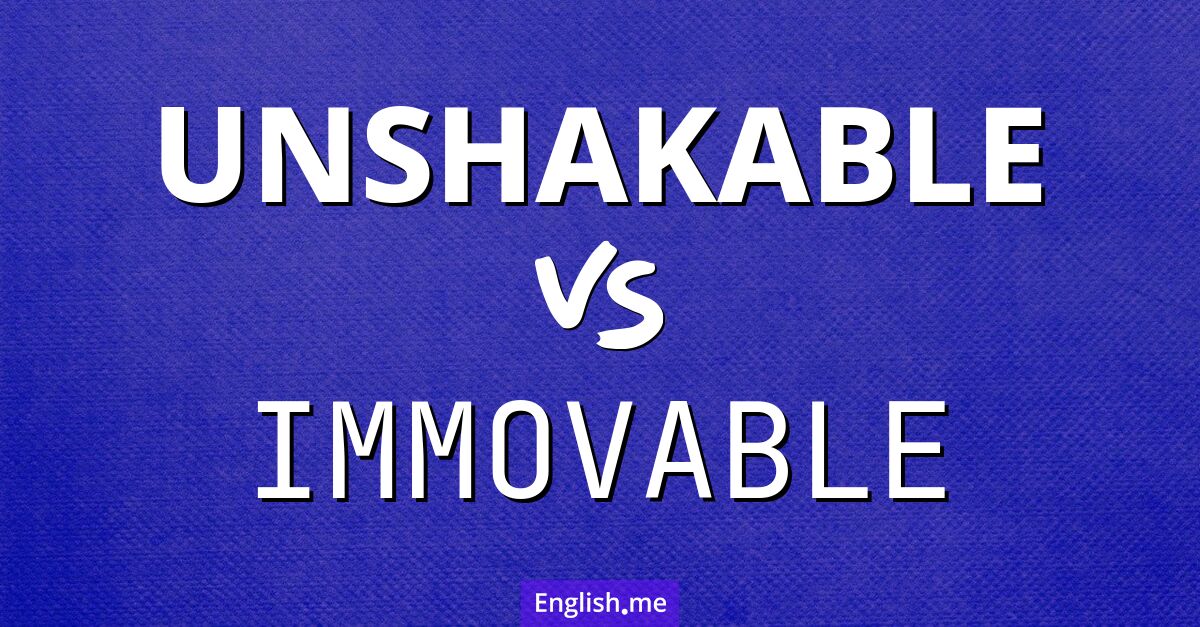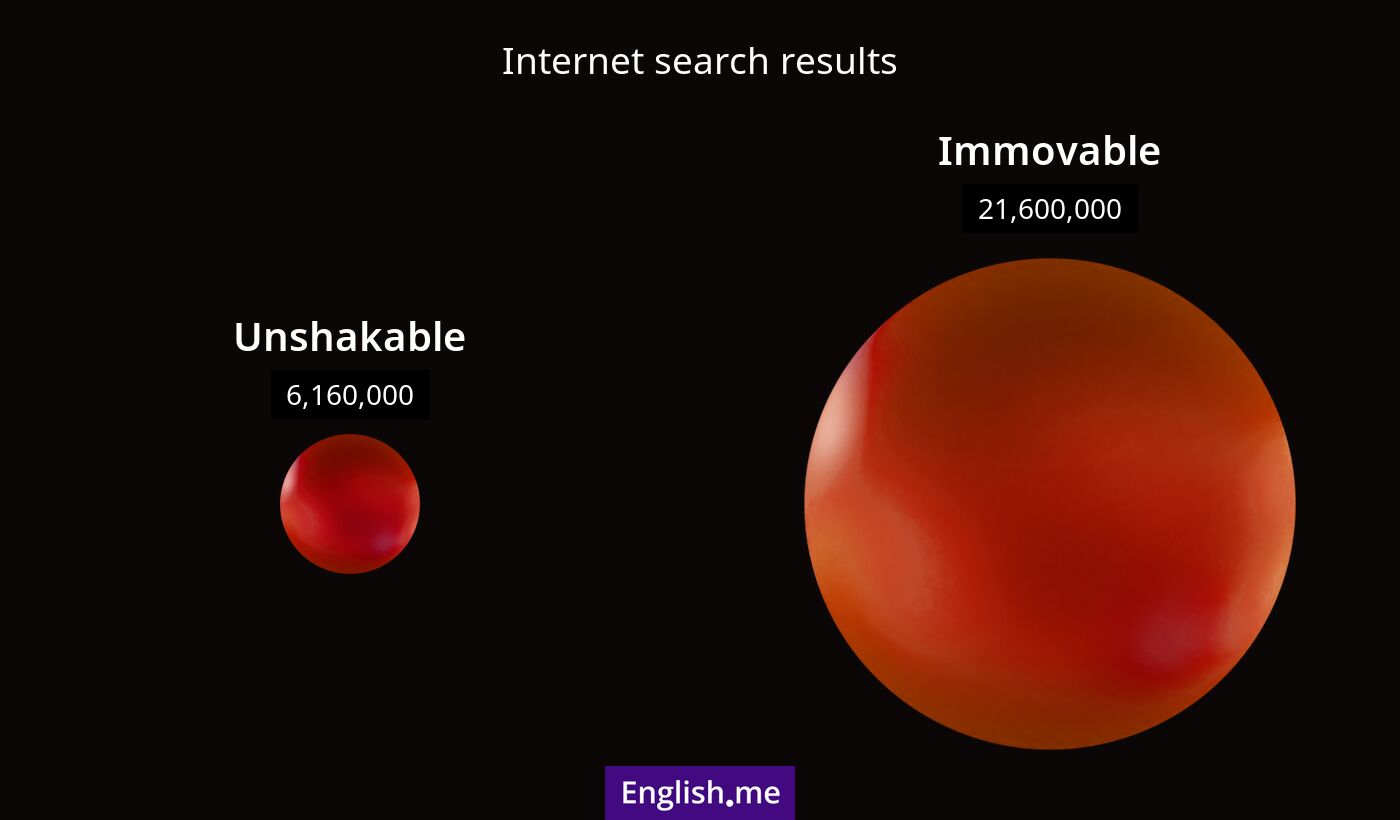"Unshakable" vs. "immovable": when words refuse to budge
Reviewed and edited by  Lloyd Cooper 07/02/2025, 03:36
Lloyd Cooper 07/02/2025, 03:36
English.me team member

 What is similar?
What is similar?
Both "unshakable" and "immovable" describe something that cannot be changed, moved, or influenced. They convey a sense of steadfastness, firmness, and resistance to external forces, whether literal or figurative.
 What is different?
What is different?
"Unshakable" often refers to intangible qualities like beliefs, confidence, or resolve that cannot be weakened or shaken. It is commonly used in a metaphorical sense to describe emotional or mental steadfastness. "Immovable" typically refers to physical objects that cannot be moved, but it can also describe someone's stubbornness or inflexibility. It is more frequently used in a literal context to denote physical immobility.
 Which one is more common?
Which one is more common?

 Examples of usage
Examples of usage
Unshakable- Her unshakable faith gave her strength during difficult times.
- He approached the challenge with unshakable confidence.
- They showed unshakable determination to reach their goals.
- The massive stone was immovable despite their efforts.
- She remained immovable in her decision, despite the arguments.
- The statue stood immovable in the town square for centuries.

 English
English español
español française
française italiano
italiano deutsche
deutsche 日本語
日本語 polski
polski česky
česky svenska
svenska Türkçe
Türkçe Nederlands
Nederlands